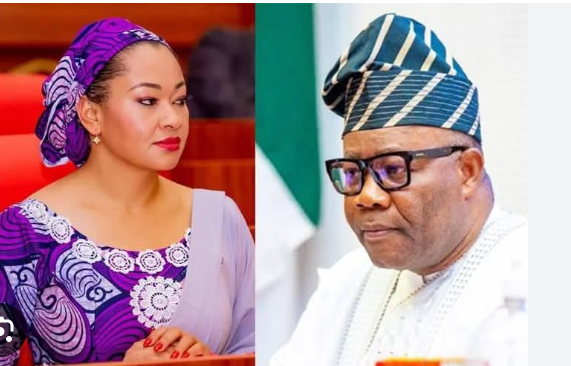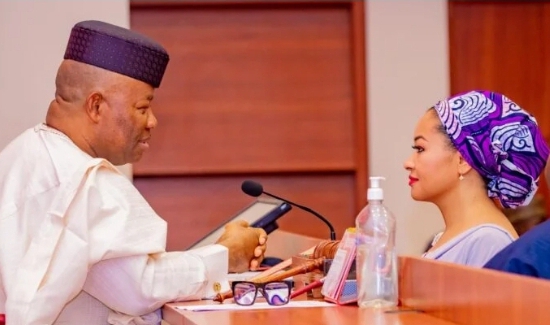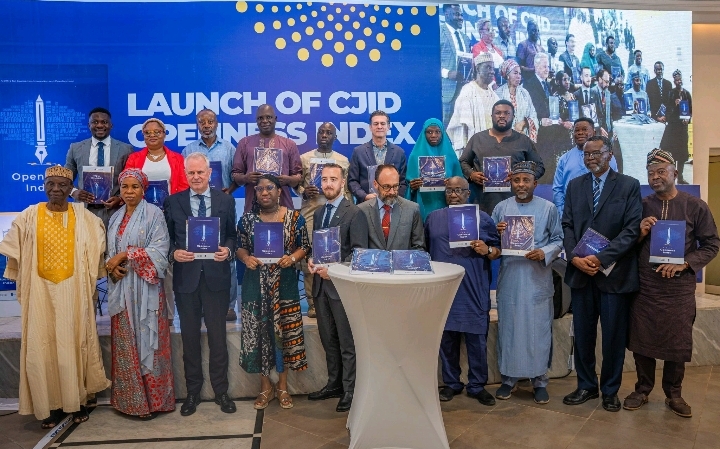
….. Experts reckoned press freedom in Nigeria is not just under threat, it is under siege
In a move to address growing threats to media freedom and civic space in Nigeria, the Centre for Journalism Innovation and Development (CJID) has launched the 2024 Openness Index, a comprehensive tool aimed at measuring the state of openness, transparency, and press freedom across Nigeria’s 36 states and the Federal Capital Territory.
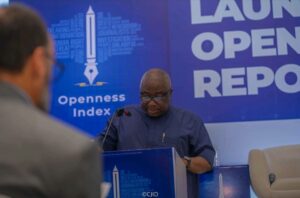
During the unveiling ceremony on Thursday, in Abuja, CJID Chief Executive Officer (CEO) Dapo Olorunyomi, described openness not as a luxury, but a fundamental democratic imperative. “We must treat openness as a pillar,” he said,
He further urged the stakeholders to transform the index findings into actionable reforms that expand civic space and protect digital freedoms.
“CJID’s Press Attack Tracker (PAT) corroborated the grim reality on the ground, documenting 140 attacks on journalists between December 2023 and November 2024. Lagos and the FCT accounted for a significant share, with 21 and 45 attacks, respectively,” CEO CJID added.
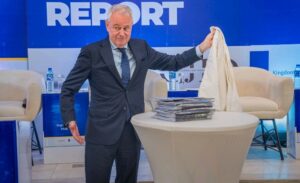
The launch sparked international attention and support. HE Bengt Van Loosdrecht, Ambassador of the Kingdom of the Netherlands, emphasized the increasing global trend of legal threats and surveillance targeting journalists. “This is not just a Nigerian problem; we are seeing this globally,” he said, adding that openness must be defended as a public good.
Mr. Fredrik Ahsberg, Head of Political and Trade Affairs at the Embassy of Sweden, highlighted his country’s historic commitment to press freedom, noting that in Sweden, such rights have been embedded in the national DNA since 1766. He praised the Openness Index for identifying actionable gaps.
From the U.S. Embassy, Brian T. Neubert, Acting Public Diplomacy Counselor, emphasized that Nigeria’s economic development is closely tied to a free press. “Without press freedom, Nigerians, especially the youth, cannot realize their potential,” he noted.
Backing the initiative, Harlan Mandel, CEO of the Media Development Investment Fund, applauded CJID for spotlighting the struggles of journalists outside capital cities who often face the highest risks with the least support.
Research Methodology, Finding and Ranking of the Openness Index
Presenting the findings, Professor Victor Ayidun-Aluma, Professor of Mass Communications and Social Change, stressed that the index combines both perception data and incident-based evidence to provide a more holistic view of democratic openness.
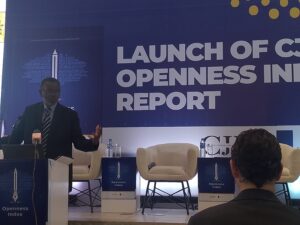
He revealed that 22 states were classified as “inhibitors,” including Lagos (48.93 per cent), FCT (49.28 per cent), and Kaduna (45.72 per cent), while 12 states including Katsina (57.51 per cent) and Abia (53.15 per cent) were tagged as “average enablers.
“Nigeria scored an average of 50.51 per cent, classifying it as an “Average Enabler” of press freedom. However, Lagos, FCT, and Imo were among states that performed poorly, particularly on indicators such as media safety, political tolerance, and freedom of expression. Lagos, the commercial capital, scored just 29.21 per cent on violent treatment of journalists, despite ranking 22nd overall in the index.
“Developed from a survey of 1,110 respondents, including journalists, media owners, and civil society actors, the Openness Index rates states on seven indicators: political, legal, security, economic, sociocultural, media environment, and gender inclusion.
“Cross River State emerged as the most open environment, scoring 70.40 per cent, while Imo State ranked lowest with 40.70 per cent. The report emphasized that the weakest media capacities are often found in rural and subnational communities, where the most pressing stories are also unfolding.”
Panel Session on the state of the media and Civil space in Nigeria
The Openness Index Spurs Heated Panel on Media Freedom, Poverty, and the Future of Journalism in Nigeria, the experts said that Nigerian media faces “existential crisis”; call for legal reforms, financial independence, and introspection.
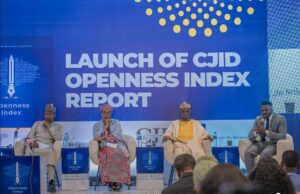
Moderating the session, CJID’s Executive Director, Akintunde Babatunde, described the national average as “mediocre” and noted that “journalists are often scared for their lives,” calling for structural support and protection. Framed the discussion around the core functions of the media, information dissemination, agenda-setting, and watchdog roles.
In response, Prof. Tonnie Iredia, a veteran media executive and scholar, traced the evolution of Nigeria’s press and reflected on the current needs of the industry.
Prof. Iredia highlighted that contrary to colonial narratives, media existed in precolonial Nigeria through traditional communication systems. He traced the press’s active role in the anti-colonial struggle, the resistance against military dictatorship, and the painful sacrifices made through guerrilla journalism during repressive regimes. However, he lamented that the situation today remains grim.
“There is no media freedom in Nigeria.Section 22 of the Constitution is a mandate, not a freedom. Section 39 guarantees freedom of speech, not press freedom. We must stop conflating the two,” Iredia declared.
He criticized outdated legal frameworks, such as the Newspaper Ordinance of 1903 and sedition laws of 1909, arguing that the legal environment for press freedom remains hostile, and Nigeria’s constitution lacks explicit protections for media rights unlike Ghana, Malawi, or the United States.
He questioned whether journalism should continue to be practiced without legal protection or fair economic compensation. “What is the essence of freedom when journalists are not safe, not paid, and not protected?” he added.
Prof. Iredia issued a challenge to media professionals and associations to confront their own complicity in the crisis: “We must address contributory negligence, how we help others to undermine us,” he said. “Journalists must stop compromising standards. Associations must stop electing leaders who later become commissioners or mouthpieces for the same institutions they once challenged.”
He stressed that media leadership must be anchored in integrity and courage, not proximity to power.
Prof. Umaru Pate, Vice Chancellor of Federal University Kashere, painted a sobering picture of the structural crisis facing Nigerian journalism.
He cited multiple threats, including: Lack of funding and economic safety, Rapidly evolving technology, Credibility erosion due to disinformation andLegal insecurity and physical risks
Pate noted that economic hardship is at the heart of editorial compromise such as Economic independence determines editorial independence.
Journalism today must contend with psychological, physical, economic, gender, legal, and digital insecurities,”he said.
The scholar warned that in the absence of investment in media infrastructure and training, journalism’s relevance to the public is shrinking in an era dominated by entertainment and user-generated content.
Zainab Suleiman Okino, Head of Editorial Board at the Blueprint Newspaper brought a practitioner’s voice to the conversation. She recounted her 2019 detention for doing her job and highlighted how media ownership by political or religious actors stifles editorial autonomy.
“The lack of investments in professional, independent media has led to a broken industry where the few investments available are politically or ideologically compromised,” she said.
She noted that younger media platforms often struggle with exclusive or investigative stories due to pressure from owners or advertisers and the absence of financial support for rigorous journalism.
READ ALSO: NARAP Commemorates First-ever National Day, Champions Sustainable Refrigeration Practices
World Ranger Day 2025: Wild Africa Calls for Greater Support for Africa’s Wildlife Defenders
The panel also explored the rise of big tech and advertising monopolies, which drain revenue from traditional media and skew information flows. The financial infrastructure that once supported serious journalism has been captured by special interests, reducing newsroom independence.
The 2024 Openness Index is not just a report, it is a call to action, one that demands that openness, inclusion, and press freedom be treated as non-negotiable pillars of Nigeria’s democracy.

